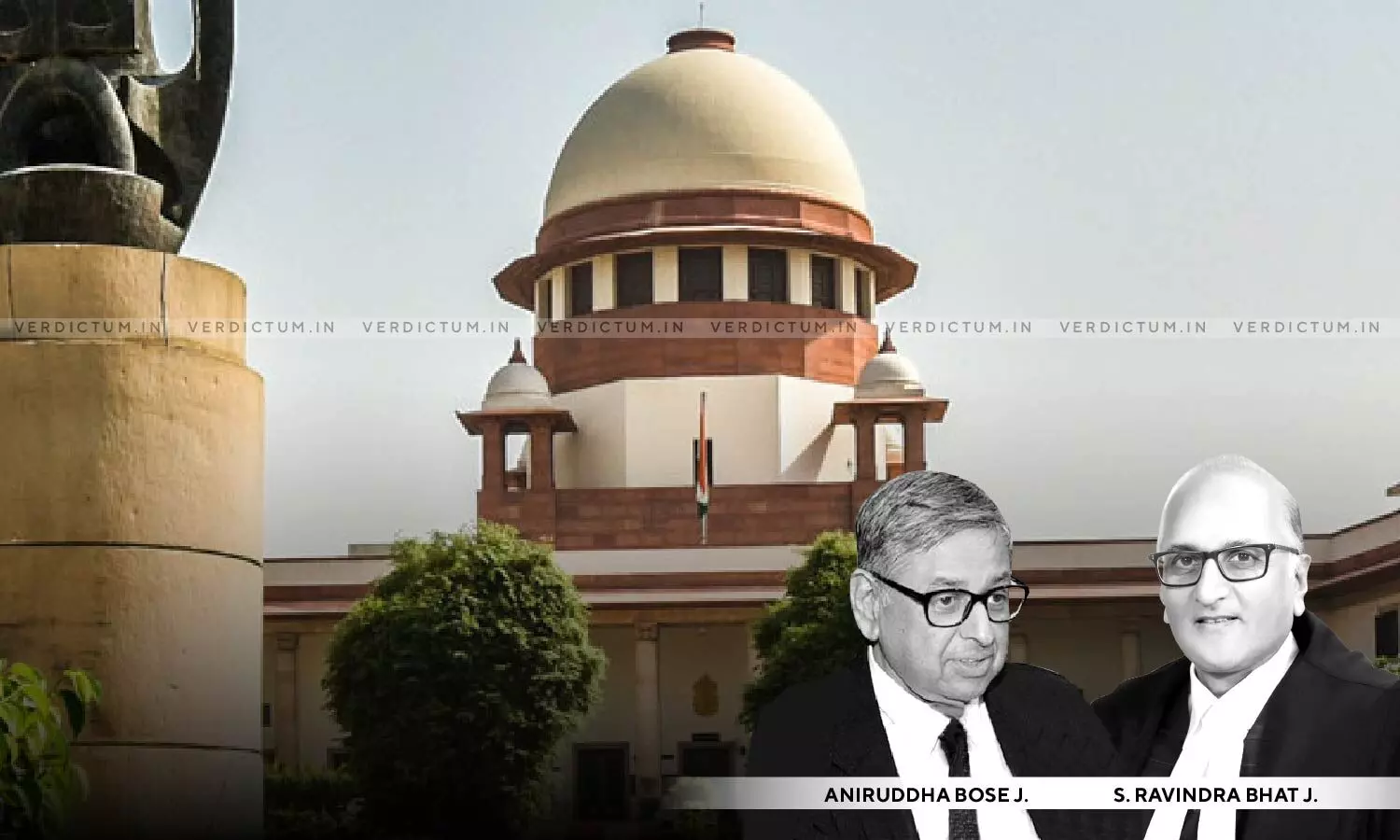
State & Public Employers Under Obligation To Revise Wages Periodically In Public Interest: Supreme Court
 |
|The Supreme Court has recently held that the State and public employers shall consider the ill effects of the rise in the cost of living and accordingly revise the wages periodically in the public interest.
The Court said that the periodic revision of pay will help the workers in dealing with price hikes and keep them from resorting to other inducements to supplement their income.
The Bench of Justice Aniruddha Bose and Justice S. Ravindra Bhat observed, “… the state and public employers have an obligation to address – as a measure of public interest, the ill-effects of rise in the cost of living, on account of price rise, which results in fall in real wages. This obligation should be discharged on a periodic basis. Yet, there cannot be any straitjacket formula as to when such pay revisions are to be made and to what extent revisions should take place. As a general practice, the Union and state governments have been undertaking such exercises each decade.”
The Bench further observed that Article 43 of the Constitution obliges the State to ensure that all workers, industrial or otherwise, are provided with a living wage and assured of a decent standard of living.
“In this context, the need for providing a mechanism to neutralize price increase, through dearness allowance has been emphasized, in past decisions of this court. In Hindustan Lever Ltd. v. B.N. Dongre, the court explained that if pay packets are “frozen”, the purchasing power of the wage would shrink, and there would be a fall in real wages, which needs to be neutralized”, the Court said.
Advocate Seshatalpa Sai Bandaru appeared on behalf of the appellants while Advocate Aaditya Aniruddha Pande represented the respondents.
Brief Facts –
An appeal was filed by the Maharashtra State Financial Corporation Ex-Employees Association against the State Government’s denial of the benefit of revision of pay scales, as recommended by the Fifth Pay Commission, to the employees of the corporation who had either retired or expired between January 1, 2006, and March 29, 2010.
The appellant association (consisting of employees who had superannuated, opted for VRS, resigned, or were legal heirs of expired employees of the respondent corporation) challenged the judgment of the Bombay High Court, Nagpur Bench as that decision denied the benefit of revision of pay scales.
The Supreme Court in view of the facts and circumstances of the case noted, “The respondents’ decision not to grant arrears prior to 01.01.2006 cannot be found fault with; however, not to grant any revision to those who were not in service when the order implementing the pay revision was issued and confining it to those, in employment is clearly discriminatory. The rationale that granting such pay revision only to existing employees would be to enthuse them to recover NPA amounts payable to MSFC has no rational nexus with the object sought to be achieved by the pay revision, which is to benefit employees and protect them from the rise in the cost of living.”
The Court asserted that there is no distinction between those who retired (or died in service) before March 29, 2010, and those who continued in service - and were given the pay revision and that those who worked during the said period and those who continued thereafter, fell in the same class due to which a further distinction could not be made.
“The fact that the MSFC did not recover any interim relief, or ad-hoc amount disbursed between 18.09.1996 to 31.12.2005 (towards recommendations of the 5th Pay Commission), also reaffirms that these ex-employees belonged to the same class as those that received the benefit of the pay revisions. The exclusion of the retired employees, who retired between 01.01.2006 and 29.03.2010 on achieving their date of superannuation, is violative of Article 14 of the Constitution of India”, the Court held.
The Court, however, noted that the employees who secured VRS benefits and left the service of MSFC voluntarily during this period, stand on a different footing and hence cannot claim parity with those who worked continuously, discharged their functions, and thereafter superannuated.
“VRS employees cannot claim parity with others who retired upon achieving the age of superannuation. Likewise, those who ceased to be in employment, for the reason of termination, or their dismissal, etc., would not be entitled to the benefit of pay revision”, the Court further observed.
The Court, therefore, directed the respondent corporation to pay interest at the rate of 8% p.a. on the arrears and the same shall be disbursed to the individuals within eight weeks.
“The appeal is accordingly allowed, to the extent that those who retired from the services of MSFC between 01.01.2006 to 29.03.2010, and the legal heirs/representatives of those who died during that period, shall be entitled to arrears based on pay revision, accepted by the Corporation”, said the Court.
Accordingly, the Apex Court partly allowed the appeal and set aside the judgment of the High Court.
Cause Title- Maharashtra State Financial Corporation Ex-Employees Association & Ors. v. State of Maharashtra & Ors.
Click here to read/download the Judgment